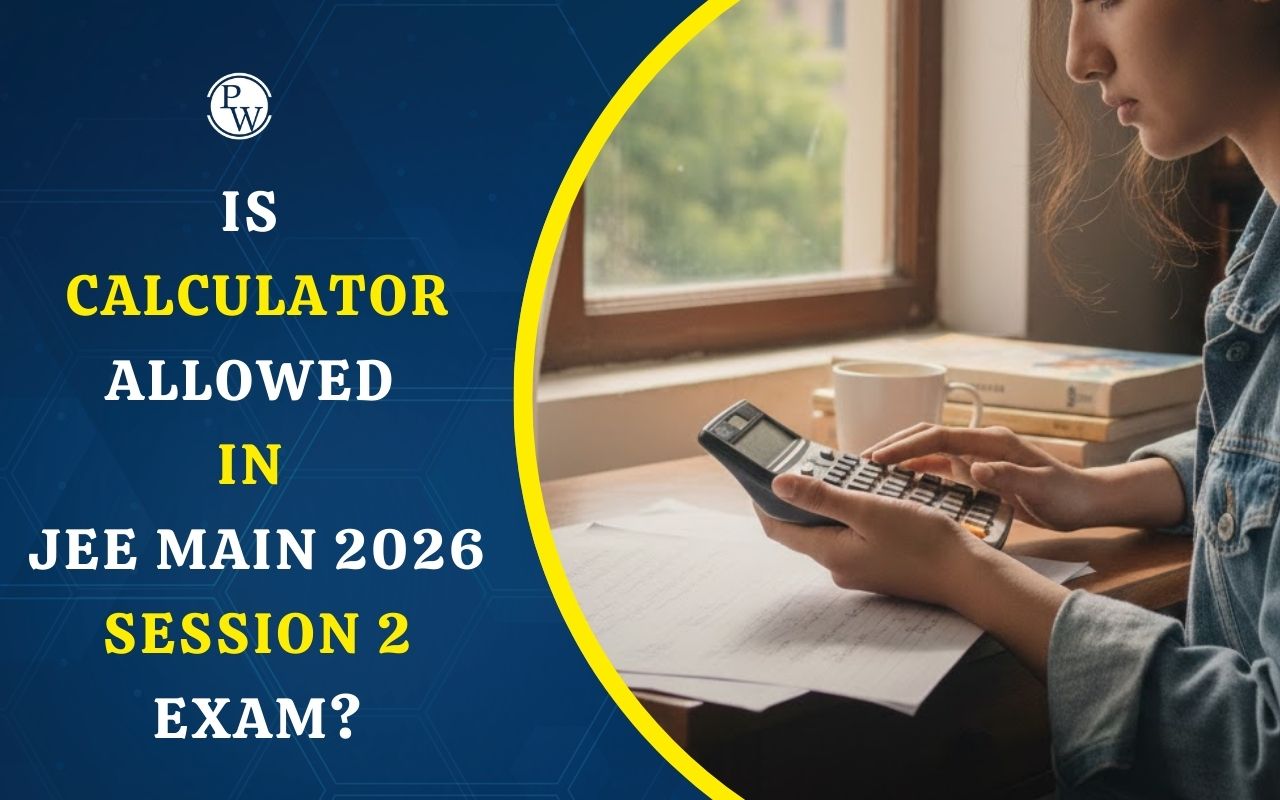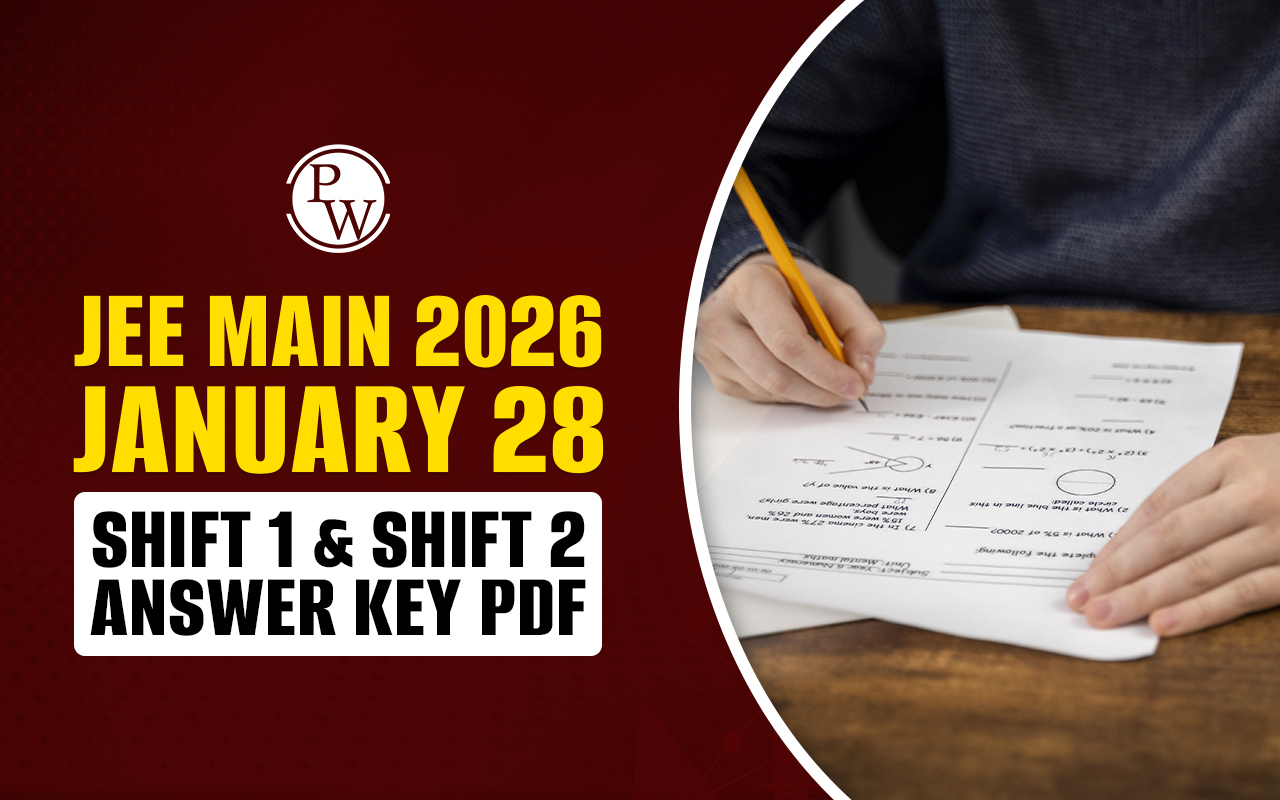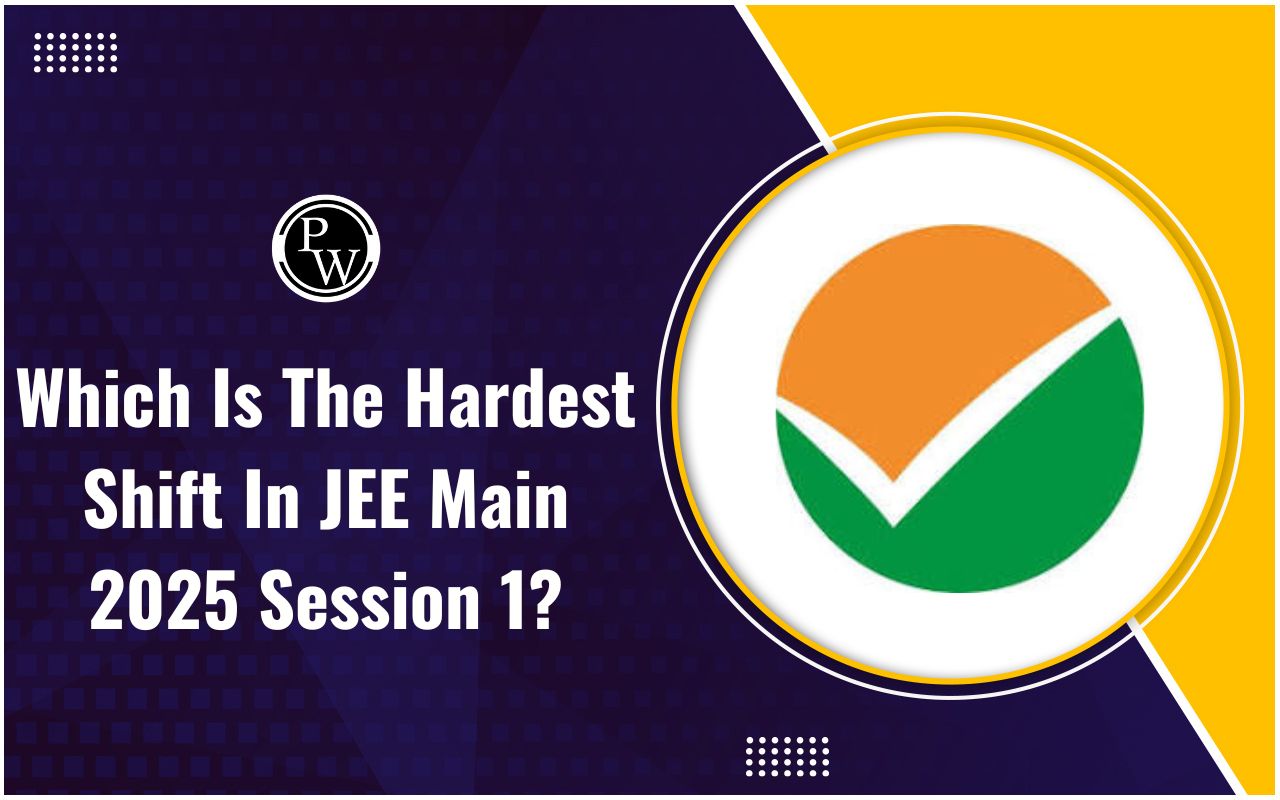
Is JEE Advanced Tough For 2026?: The difficulty level of JEE Advanced 2026 remains a major topic of interest among students preparing for admission into the IITs. Every year, students are curious about the JEE Advanced question difficulty trend, especially to understand what to expect in the upcoming paper. If you're wondering how tough is JEE Advanced 2026, it's important to know that the exam not only tests your academic knowledge but also your conceptual clarity, logical reasoning, and problem-solving skills. With IIT Roorkee likely to conduct the exam in May 2026, students should prepare for an unpredictable yet balanced paper that challenges their understanding across Physics, Chemistry, and Mathematics.
How tough is JEE Advanced 2026?
JEE Advanced 2026 is considered one of the toughest engineering entrance exams in India. It is the gateway to prestigious IITs and tests not just academic knowledge, but also problem-solving skills, analytical thinking, and time management. The exam challenges candidates with multi-conceptual questions that often require multiple steps to solve.
JEE Advanced places a strong emphasis on deep conceptual understanding, setting it apart from exams like JEE Main or other state-level entrance tests. Students can expect unpredictable question formats, tricky numerical problems, and high-level application-based questions in Physics, Chemistry, and Mathematics.
Key reasons why JEE Advanced 2026 is tough:
-
It emphasizes conceptual understanding over rote learning.
-
Questions are analytical, often combining multiple chapters or subjects.
-
There is no fixed pattern, which means students must be mentally flexible.
-
The exam is time-pressured, and accuracy is crucial due to negative marking.
-
Only the top 2.5 lakh rankers from JEE Main are eligible to appear, making the competition highly intense.
However, with consistent preparation, mock test practice, and a strong command over NCERT and advanced-level concepts, students can overcome the difficulty. Success in JEE Advanced requires smart strategy, regular revision, and a calm mindset during the exam.
JEE Advanced vs JEE Main 2026 difficulty
Compared to JEE Main, JEE Advanced 2026 presents a much higher level of difficulty. While JEE Main tests basic understanding and speed, JEE Advanced focuses on conceptual depth, multi-topic questions, and logical reasoning. In JEE Main, questions are mostly direct and based on NCERT, whereas JEE Advanced includes tricky, multi-step problems that require deep analysis and problem-solving skills. Also, JEE Advanced has no fixed pattern, making it less predictable. Eligibility for JEE Advanced is limited to the top 2.5 lakh scorers of JEE Main, highlighting its highly competitive nature.
JEE Advanced 2026 Preparation Strategy
How to Crack JEE Advanced 2026 lies in following a smart and focused strategy that balances conceptual clarity, problem-solving skills, and regular revision to ensure consistent progress and exam readiness.
-
Strengthen Basics: Start with preparation books for all three subjects. Build strong fundamentals before moving to advanced-level problems.
-
Practice Regularly: Solve JEE previous year papers and take topic-wise tests. Focus on accuracy and time management.
-
Focus on Concepts, Not Just Formulas: JEE Advanced tests application skills. Understand "why" behind every concept.
-
Revise Smartly: Make short notes and revise weekly. Focus more on weak areas and commonly asked topics.
-
Take Mock Tests: Attempt full-length mock tests under exam conditions. Analyze mistakes and improve speed.
-
Stay Consistent and Balanced: Candidates need to avoid burnout. Take short breaks, stay healthy, and maintain a regular study routine.
JEE Advanced Paper Analysis
JEE Advanced 2025 maintained a similar pattern as previous years with no major changes. Paper 1 was of moderate difficulty, with Chemistry and Physics offering a decent level of challenge, whereas Mathematics turned out to be the toughest among all subjects. Paper 2 was also moderately challenging; Physics ranged from moderate to tough, Chemistry was moderately difficult, and Mathematics remained tough. Several candidates believed that Paper 1 was more challenging than Paper 2. Negative marking applied to single and multi-correct questions, while numerical questions had no negative marking.
Is JEE Advanced harder than NEET 2026
When comparing JEE Advanced 2026 and NEET 2026, most toppers agree that JEE Advanced is more difficult, but the level of difficulty depends on a student's academic strengths and interests. JEE Advanced is designed to test deep conceptual understanding, analytical thinking, and the ability to solve complex, multi-step problems in Physics, Chemistry, and Mathematics. The questions often combine multiple topics and demand logical reasoning, making the paper unpredictable and challenging.
NEET, while equally competitive, focuses on speed, accuracy, and strong memory-based preparation, especially in Biology, which carries the highest weightage. The paper follows a relatively fixed and NCERT-based pattern, making it more straightforward in terms of question structure.
|
JEE Advanced Vs. Neet 2026 |
||
|
Criteria |
JEE Advanced 2026 |
NEET 2026 |
|
Subjects |
Physics, Chemistry, Mathematics |
Physics, Chemistry, Biology |
|
Question Type |
Conceptual, Logical, Multi-step Problems |
Direct, Fact-based, NCERT-focused |
|
Exam Pattern |
Variable and Unpredictable |
Fixed Pattern |
|
Skills Tested |
Analytical Thinking, Problem Solving |
Memory, Speed, Accuracy |
|
Difficulty Level |
High (especially in Math & Physics) |
Moderate to High (Biology-heavy) |
JEE Advanced 2026 Toughest Subjects
In JEE Advanced 2026, all three subjects, Physics, Chemistry, and Mathematics, are important, but the perceived difficulty often varies from student to student. Based on previous years’ trends, here’s how the subjects are generally ranked in terms of difficulty:
|
JEE Advanced 2026 Toughest Subjects |
|||
|
Subject |
Difficulty Level |
Key Challenges |
Tough Topics |
|
Mathematics |
Most Difficult |
Lengthy calculations, multi-step logic, high accuracy needed |
Permutation & Combination, Probability, 3D Geometry, Complex Numbers |
|
Physics |
Conceptually Tough |
Concept-heavy, application-based, combines multiple chapters |
Mechanics, Optics, Electricity & Magnetism |
|
Chemistry |
Moderately Tough |
Mix of memory, concepts, and numericals; varies by section |
Organic Reactions, Coordination Compounds, Thermodynamics |
JEE Advanced Exam Pattern 2026
JEE Advanced 2026 will be conducted in online mode and will include two mandatory papers Paper 1 and Paper 2, ,each with a duration of three hours. The papers will include various types of questions such as single and multiple correct MCQs, numerical answer-based, and matching-type questions. The marking scheme will involve full, partial, and zero marks depending on accuracy. A summarized format of the jee advanced exam pattern for both papers is provided below.
|
JEE Advanced Exam Pattern 2026 |
|
|
Exam Detail |
Description |
|
JEE Advanced exam mode |
Computer-based |
|
Medium of the examination |
English and Hindi |
|
Total time duration |
3 hours for each paper (4 hours for PwD candidates) |
|
Number of sections |
Both papers include three sections Physics Chemistry Mathematics |
|
Number of questions |
51 (17 questions in each subject) |
|
Marking Scheme |
Full, partial, and zero marks |
JEE Advanced cutoff
JEE Advanced cutoff refers to the minimum rank required for admission into various IITs through JoSAA counselling. Many students assume that the cutoff is released immediately after the result, but the answer is no. The JEE Advanced 2026 cutoff will not be released right after the exam results. Instead, it is published after each round of JoSAA counselling, in the form of opening and closing ranks for every IIT, branch, and category. These ranks are released round-wise and collectively represent the official JEE Advanced cutoff for that year. This cutoff helps candidates understand which IITs and branches they are eligible for, and plays a key role in making informed choices during counselling.
JEE Advanced 2026 vs Previous Years
JEE Advanced 2026 exam is expected to follow a structure similar to previous years, but there may be notable differences in terms of difficulty level, paper pattern, and student perception. Here's a quick comparison of JEE Advanced 2026 with previous years:
|
JEE Advanced 2026 vs previous years |
||
|
Year |
Difficulty level |
JEE Advanced Organising IIT |
|
2026 |
Tougher than 2026 (Expected) |
IIT Roorkee - (Expected) |
|
2025 |
Paper 1 was more challenging than Paper 2 |
IIT Kanpur |
|
2024 |
Easy |
IIT Madras |
|
2023 |
Moderate |
IIT Guwahati |
|
2022 |
Moderate and lengthy |
IIT Bombay |
|
2021 |
Moderate |
IIT Kharagpur |
|
2020 |
Moderate |
IIT Delhi |
|
2019 |
Tougher than 2018 |
IIT Roorkee |
|
2018 |
Tougher than 2017 |
IIT Kanpur |
|
2017 |
Moderate |
IIT Madras |
|
2016 |
Difficult |
IIT Guwahati |
|
2015 |
Difficult |
IIT Bombay |
|
2014 |
Moderate |
IIT Kharagpur |
|
2013 |
Moderate |
IIT Delhi |
|
2012 |
Tougher than 2011 |
IIT Delhi |
|
2011 |
Moderate |
IIT Kanpur |
|
2010 |
Moderate |
IIT Madras |
JEE Advanced 2026 Paper-Solving Tips
To crack JEE Advanced 2026, don’t just rely on preparation; focus on your paper-solving strategy too. Start by scanning the entire paper in 5–10 minutes to identify easy, moderate, and difficult questions. Use the 3-round strategy: attempt easy ones first, then moderate, and finally the tough ones if time allows. Avoid getting stuck on any question for more than 2–3 minutes. Manage time smartly and be cautious of negative marking, especially in multiple-choice and matrix-type questions. Focus on accuracy rather than speed, a few wrong attempts can reduce your overall score. Keep rough work organized and mark doubtful questions for review. Most importantly, stay calm. A tough paper is tough for everyone, and even one extra mark can make a huge difference in your rank.
JEE Advanced 2026 Time Management
Effective time management is the key to success in JEE Advanced 2026, as the exam is known for its lengthy and conceptually challenging questions. Start by dividing your time smartly between the two papers, giving around 90 minutes to each. While solving, don’t spend more than 2–3 minutes on a single question if you're stuck. Prioritize questions based on difficulty: attempt the easier ones first to build momentum, then move to moderate and difficult ones. Keep the last 10–15 minutes for revising marked or doubtful questions. Also, make sure to read the instructions of each section carefully, as different question types may have different marking schemes. Regular practice through timed mock tests can significantly improve your speed, accuracy, and confidence on the actual exam day.
Mistakes to Avoid in JEE Advanced 2026
Many aspirants lose marks in JEE Advanced 2026 not due to a lack of knowledge but because of avoidable mistakes. One major error is poor time management, spending too much time on tough questions and leaving easy ones unanswered. Another common mistake is ignoring the exam instructions and marking schemes, especially in multiple-choice or matrix-match questions, which can lead to heavy negative marking. Avoid guesswork in risky sections, and never attempt questions blindly. Also, skipping revision during the exam can cost you dearly always keep time to recheck. Lastly, don’t panic if the paper feels tough; maintain focus and remember that performance under pressure matters more than perfection.
|
JEE Advanced 2026 Important Links |
|
Is JEE Advanced Tough For 2026 FAQs
How tough is JEE Advanced 2026?
Is JEE Advanced harder than JEE Main 2026?
Is JEE Advanced more difficult than NEET 2026?
Which is the toughest subject in JEE Advanced 2026?
When will the JEE Advanced 2026 cutoff be released?










